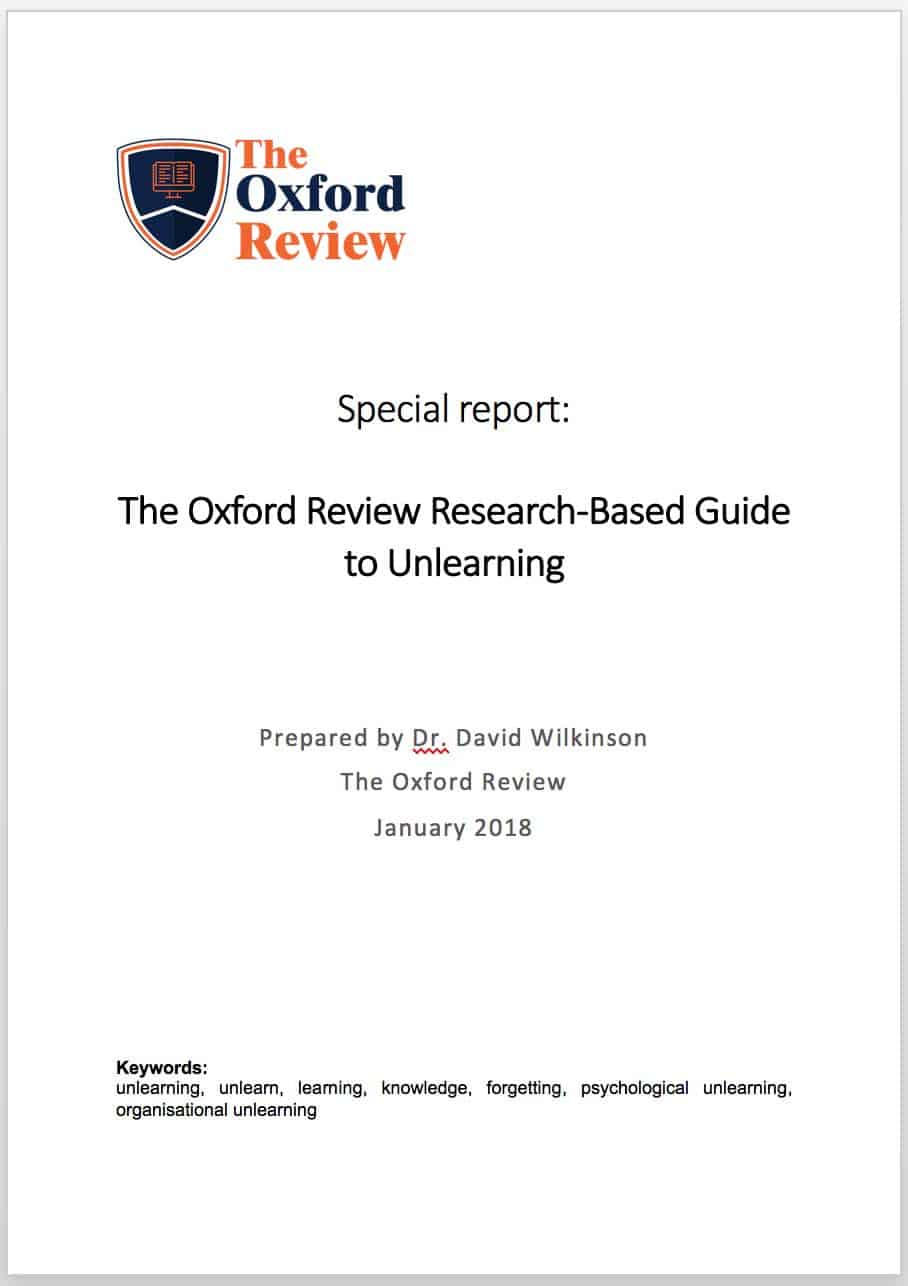- in Blog , Oxford Review by David Wilkinson
- |
- 1 comments
Unlearning – what the latest research actually says

There is a lot of theory, opinion and speculation about the concept of unlearning. In particular one often sees a process like learning and unlearning and learning again being proposed. This is not just confined to ideas around learning and development but also organisational development.
However is this process of learning and unlearning and learning again actually real? Do we really need to unlearn things before we learn again?
What does the the latest research actually say about unlearning?
There has been a fairly constant and consistent interest over the past few years in the ideas of unlearning, and how to unlearn in both the popular and research literature. The idea of unlearning has firmly entered the organisational development rhetoric as well as that of individual human learning.
The Oxford Review has just published a 14 page special report which looks at the very latest research evidence around the whole issue of unlearning. Get up-to-date with what the latest research is actually saying – it is probably different to what you may believe or have been told.
Contents
- Unlearning: The latest research
- Background
- Criticism
- The psychological origins of unlearning
- Theory Change and Unlearning
- Unlearning in the organisational development and management literature
- Parenthetical learning
- New research on unlearning
- What is there evidence for?
- Conclusion
- References
To find out what the very latest research has to say about unlearning click here
Be impressively well informed

Get the very latest research intelligence briefings, video research briefings, infographics and more sent direct to you as they are published
Be the most impressively well-informed and up-to-date person around...

1cultures